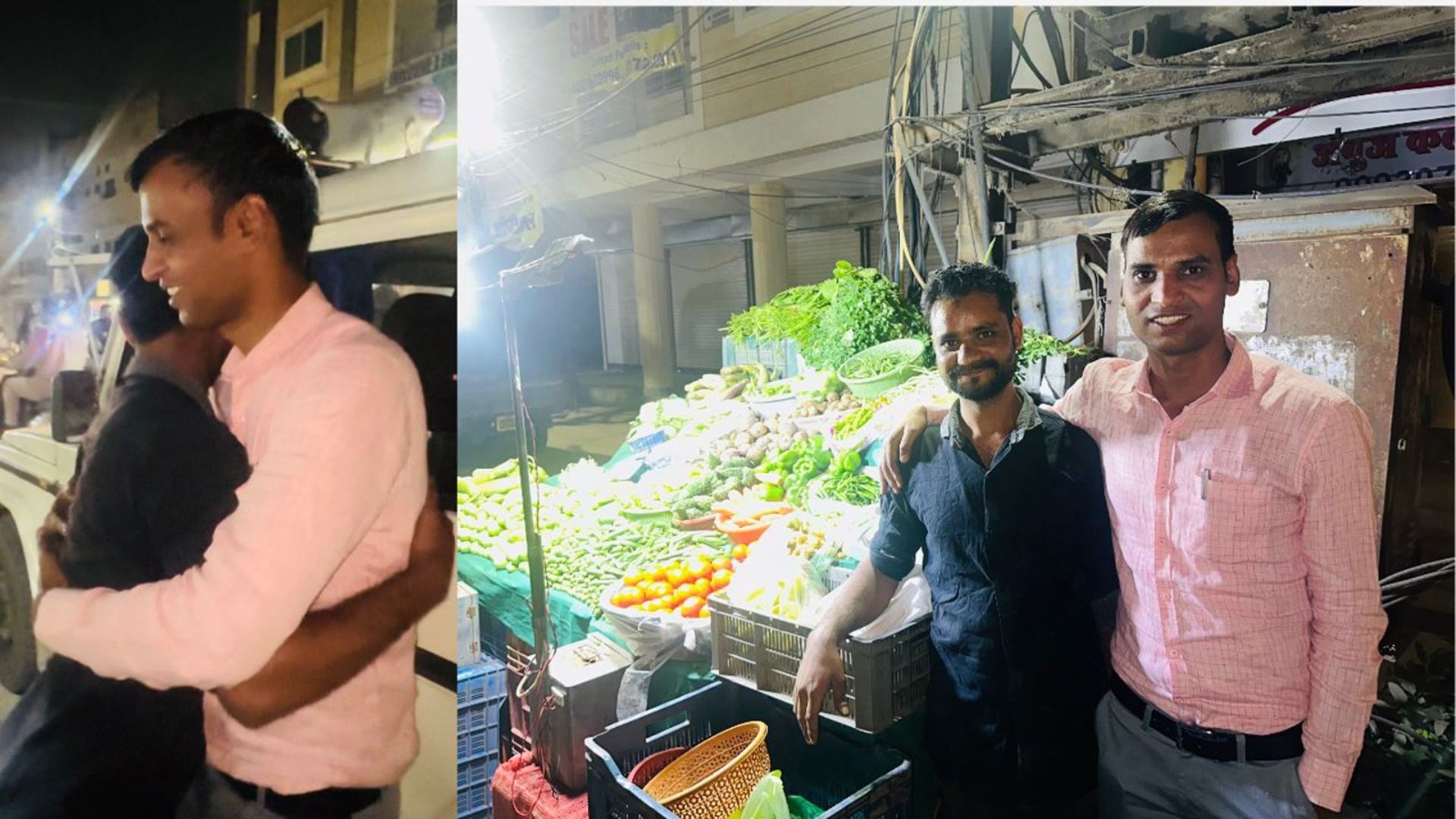
The Russian invasion of Ukraine on 24 February 2022 witnessing the Russian troops crossing the Ukraine boarders and explosions in cities including Ukraine’s capital Kyiv, has heightened the risk of human rights violation. The unprovoked invasion proceeded by a month long amassment of more than 1,00,000 Russian troops on the Ukraine boarders not only threatened rights of civilians but a clear violation of international humanitarian law. The UN High Commissioner for Refugees (UNHCR) estimated 150,000 people in Ukraine have fled their homes after the Russian invasion and. several thousand of them have crossed into Moldova, Romania and other neighboring countries. The UNHCR urged the Ukraine’s neighboring countries to open their boarders and accept the displaced people.




As reported, the cities of Ukraine are under siege as airstrikes, rolling of Russian tanks and gunfire took hundreds of Ukrainian lives by Sunday morning. The residents of Kyiv were warned to take safe shelter and not to expose themselves to gunfire. The situation in eastern Ukraine is getting worse as reported the new babies in hospitals are being getting shifted to basement of a building to avoid possible missile attacks.
The human rights bodies have warned of further escalating of violation of human rights by making civilians vulnerable to conflict, loss of livelihood, accesses to food and mass displacements. The unanimous reports suggest that the war in Ukraine will lead to large scale innocent deaths and gross violation of human rights. Just before the invasion and immediately after the Russia’s recognization of the Donetsk and Luhansk regions of Ukraine as independent states by signing agreements with their separatist leaders in the Kremlin, Ms. Michelle Bachelet, UN High Commissioner for Human Rights urged both sides to cease hostilities and to pave the way for dialogue instead of setting the stage for further violence. She expressed her concern by stressing that ‘any significant escalation in military action creates a heightened risk of serious human rights violations as well as violations of international humanitarian law’.
The concern expressed by the Chief of the UN Human Rights body and her clarion call did not yield any result as Russia invaded Ukraine two days after recognizing the Ukrainian territories as independent states .The leaders of various countries of the world have expressed that the Russian invasion has the potential to become largest military intervention in Europe since World War II and in this context it is necessary to examine the development of international law, humanitarian and human rights law following World War II.
INTERNATIONAL LAW AND TERRITORIAL INVASIONS:
International law which governs the relations between different countries, primarily arise out of the treaties, covenants, pacts singed by the countries. The establishment of United Nations Organization immediately after the havoc created by the World War II, played a pivotal role in the development of international law, humanitarian and human rights law. The countries by becoming the member of United Nations are committed to be bound by the UN Charter.
The purposes of United Nations as set out in Article 1 of the UN Charter are aimed to maintain international peace and security and to that end take collective measures to prevent aggressions and threat to peace though peaceful means in conformity with the principles of international law. Article 2 (4) of the UN Charter urges its members to refrain from the threat or use of force against the territorial integrity or political independence of any state. However, Article 51 of the UN Charter saves the inherent right of any individual member or collective self-defense if an armed attack occurs against a member of United Nations. The only exception to prohibition of use of force is self –defense in case of an armed attack.
There cannot be any legal justification for Russian invasion as there is hardly any action of Ukraine which can be construed as ‘an armed attack’. U.N. Secretary-General Mr. António Guterres taking note of the situation of invasion, on 24 February 2022 called on Russia to stop its fast-moving ground invasion of Ukraine. In his statement he emphasized that “the use of force by one country against another is the repudiation of the principles that every country committed to uphold. This applies to the present military offensive. It is wrong. It is against the (United Nations) Charter. It is unacceptable”.
As per the statement of the UN Secretary General Russia’s invasion of Ukraine, a sovereign nation, directly conflicts with the United Nations Charter, an agreement that guides the work of the U.N. and its 193 member states. Therefore, the invasion of Ukraine by Russia is illegal.
INTERNATIONAL HUMANITARIAN LAW:
International humanitarian law also known as laws of war is a part of international law protects civilians in an armed conflict. It is a set of rules which seek, for humanitarian reasons, to limit the effects of armed conflict. It protects persons who are not or are no longer participating in the hostilities and restricts the means and methods of warfare (ICRC).
The rules of international humanitarian law applies once a war or armed conflict breaks out. It is not the scope of international humanitarian law to prohibit invasion or declare an invasion in territorial independence of a country is illegal which is the subject matter of international law.
The major components of international humanitarian law refers to Geneva Conventions of 1949 and its Subsequent Conventions, Protocols established under the aegis of International Committee of Red Cross with its emphasis on protection of victims of war and human treatment of persons who do not take part in war; the Conventions and treaties prohibiting the use of certain weapons under the aegis of United Nations in furtherance of UN’s fundamental objectives to secure peace and prevention of armed conflict.
The laws of war or international humanitarian law is based on the principle of proportionality which means only the attacks would be limited to the military objectives. The attack on the civilian objects such residential areas, schools, business centres, hospitals are prohibited. The foremost rule of humanitarian law is to distinguish between the combatants and the civilian and to protect the civilians. It requires the parties to a conflict must distinguish between civilians and combatants. Any attack on civilians during the war are treated as war crimes. Humanitarian law also prohibits the starvation of civilians and attack on natural environment. The law requires women and children are to be provided with special measures and journalists working on dangerous missions are treated as civilians and are to be protected.
HUMAN RIGHTS:
Human rights limits the state’s authority in interference of its peoples /citizens civil and political rights and ensures the realization of economic and social rights. It considers freedom is at the core of human beings and urges economic and social needs of the people. Human rights and it legal protections have assumed importance soon after the Second World War with the establishment of United Nations. The Univeral Declaration of Human Rights ,1948 adopted by the United Nations sets out the fundamental human rights which are to be universally protected. The subsequent adoption of European Convention of Human Rights, 1950 and International Covenant of Civil and Political Rights,1966 affirmed the entitlement of every individual’s enjoyment of human rights in terms of war as well as peace. However, as per Article 4 of International Convenant of Civil and Political Rights and Article 15 of European Convention of Human Rights allow a state to temporarily suspend their obligation under the convenant and conventions in case of an emergency threatening a nation. Whereas, international humanitarian law recognizes the need for safeguarding human rights at the time of war and the Geneva Convention of 1949 provides for humanly treatment of persons at the time of armed conflict without any distinction.
Both Ukraine and Russia are parties to the European Convention on Human Rights (ECHR), the International Covenant on Civil and Political Rights (ICCPR), but Ukrainians have been subjected to human rights deprivations following Russian invasion of Ukraine’s Crimean Peninsula since 2014 and Russia’s policy of supporting separatist forces in eastern Ukraine against the Ukrainian government. As per UN the conflict has taken more than 13,000 lives.Reportedly, more than 1.5 million people have been internally displaced and there are numerous instances of commission of war crimes. The UN reports that the media persons, human rights activists and persons who earlier criticized Russian invasion of Crimea were subjected violence and attack. Now it is feared that gross violation of human rights is going take place as Russia is going to target the individuals who take anti- Russia views and anti-war protesters. The human rights organizations and even US Ambassador to UN expressed deep concern about human rights violations and abuses are being planned by Russia in the aftermath of invasion.
The recent invasion of Ukraine by Russia is not only a clear violation of international law but the ongoing armed conflict in the cities and taking into account the commission of war crimes and gross violation of human rights by the Russian forces during the annexation of Crimea, there can not be any doubt that international humanitarian law and human rights are at stake in Ukraine.
Bhagabati Prasad Padhy, is a practicing Advocate in Supreme Court of India.
Human rights and legal protections have assumed importance soon after the Second World War with the establishment of United Nations. The Univeral Declaration of Human Rights, 1948 adopted by the United Nations sets out the fundamental human rights which are to be universally protected. The subsequent adoption of European Convention of Human Rights, 1950 and International Covenant of Civil and Political Rights,1966 affirmed the entitlement of every individual’s enjoyment of human rights in terms of war as well as peace















